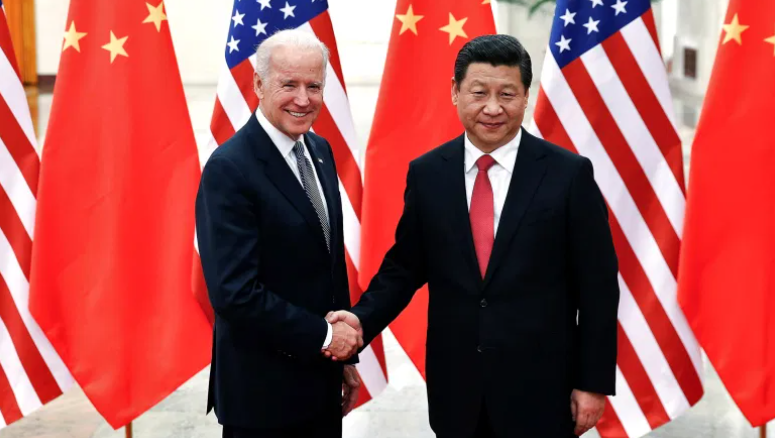
Read more at the National Review
Top Biden administration officials have largely kept their promises to vigorously compete with China. Building on the Trump administration’s China policies, they’ve pressed Beijing on its horrific human-rights abuses, bolstered U.S. support for Taiwan using the previous administration’s framework, and built out the Quad of Pacific democracies. In addition to that, the Biden team’s own focus on multilateral action has started to yield some results: This week, they announced sanctions on Chinese officials, coordinated with the U.K, the EU, and Canada, to punish CCP officials for their role in the Uyghur genocide.
But this flurry of activity has been joined, puzzlingly, with a deliberate effort to leave room for meetings such as last week’s rancorous U.S.-China summit in Alaska and President Biden’s decision to invite the CCP’s general secretary to a global climate summit.
To hear Biden appraise the challenge posed by the CCP is to listen to a meandering description of his recent phone conversation with its general secretary Xi Jinping, as he did yesterday. “I made it clear to him again what I’ve told him in person on several occasions: that we’re not looking for confrontation, although we know there will be steep, steep competition.”
No one wants a military conflict, but if calling out an authoritarian regime’s human-rights abuses and international bullying is anything, it is confrontation. In other words, the policies and statements of the president’s own administration belie a need to call the situation what it is, and not a sugarcoated version of the truth.
The problem is not that officials have backed down from speaking out on the CCP’s transgressions. On a trip to Tokyo earlier this month, Secretary of State Antony Blinken accused Beijing of using “coercion and aggression to systematically erode autonomy in Hong Kong, undercut democracy in Taiwan, abuse human rights in Xinjiang and Tibet, and assert maritime claims in the South China Sea” in violation of international law. If that doesn’t put a fine enough point on matters, Blinken has accused the Party of genocide in Xinjiang and referred to Taiwan as a “country” (a notable use of the term for a top U.S. official) as the mainland continues its airborne harassment of the world’s only Chinese democracy. Blinken and Biden both have defined this contest as a fundamental battle between democracy and authoritarianism in the 21st century.


